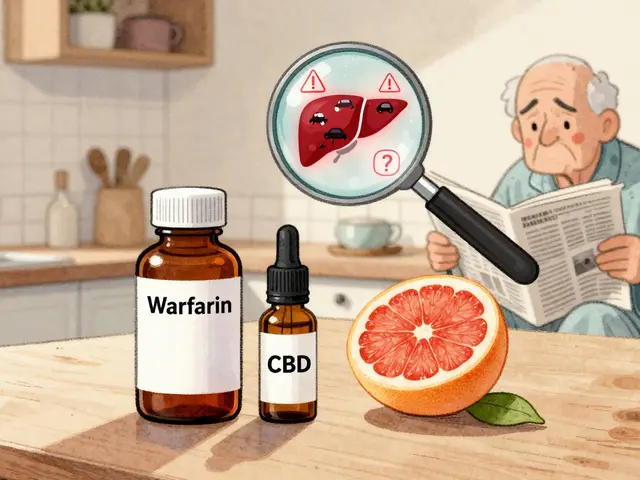Gout Patients: Practical Help for Treatment, Diet & Meds
If you’re a gout patient, you already know how fast a flare can ruin your day. This page brings together clear, useful tips you can use now — how to stop a flare, what to eat, how medicines work, and how to buy them safely online. No fluff, just straight advice you can act on.
Quick flare plan
When pain starts, act fast. Rest and elevate the affected joint, apply ice for 15–20 minutes, and keep hydrated. Over-the-counter NSAIDs like ibuprofen or naproxen help for many people, but only if your doctor says it’s okay. If NSAIDs aren’t an option, ask your doctor about colchicine or a short steroid course. Start treatment early — the sooner the meds begin, the shorter the attack usually lasts.
Track how often attacks happen and how long they last. That info helps your doctor decide whether you need a long-term urate-lowering drug like allopurinol or febuxostat. Don’t stop or start long-term medicines on your own; starting them can trigger short flares unless managed properly.
Long-term care and safe meds
Long-term control aims to lower uric acid under the level that causes crystals to form. Allopurinol is the most common option; febuxostat is another. These drugs work best when you take them regularly and pair them with lifestyle changes. Your doctor will check kidney and liver function and may adjust dose slowly to avoid side effects.
Watch for medication interactions. Diuretics, some blood pressure drugs, and aspirin can raise uric acid. If you take medicines for heart disease, blood pressure, or diabetes, talk to your doctor about gout-friendly alternatives. If you buy meds online, use trusted pharmacies, keep prescriptions on file, and read pharmacy reviews. Our site has guides on spotting legit online pharmacies and navigating customs rules if ordering from abroad.
Diet and weight matter. Cut back on red meat, organ meats, shellfish, sugary drinks, and beer — these raise uric acid. Choose low-fat dairy, vegetables, whole grains, and water. Cherries and cherry juice can help some people reduce flare risk. If you need to lose weight, aim for steady, sustainable loss; rapid weight loss can temporarily raise uric acid and spark attacks.
Exercise gently during recovery and build strength between flares. If you’re on blood pressure meds like lisinopril-HCTZ or other treatments, talk with your doctor about safe exercise plans. Regular checkups, uric acid tests, and honest conversations about side effects will keep treatment on track.
Browse the linked articles on this tag for deeper guides: medication reviews, safe online pharmacy tips, and lifestyle dives. If you’re unsure about a symptom or a medicine, get medical advice — gout is treatable, and the right plan can cut attacks way down.
27
Allopurinol and the Immune System: What Gout Patients Need to Know
As a gout patient, I recently learned about the connection between allopurinol and the immune system. Allopurinol is a medication commonly prescribed to treat gout by reducing the production of uric acid in the body. While it can be effective, it's important to know that it may also affect our immune system, possibly leading to a higher risk of infections. It's crucial for us gout patients to discuss the potential side effects with our doctors and monitor our health closely while on this medication. By staying informed, we can make better decisions for our overall well-being.
Latest Posts
Popular Posts
-
 Meniere’s Diet: How Sodium Restriction and Fluid Balance Reduce Vertigo and Hearing Loss
Meniere’s Diet: How Sodium Restriction and Fluid Balance Reduce Vertigo and Hearing Loss
-
 Extended Use Dates: How the FDA Extends Drug Expiration Dates During Shortages
Extended Use Dates: How the FDA Extends Drug Expiration Dates During Shortages
-
 Magnesium Supplements and Osteoporosis Medications: What You Need to Know About Timing
Magnesium Supplements and Osteoporosis Medications: What You Need to Know About Timing
-
 OTC Heartburn Medications: Antacids, H2 Blockers & PPIs Explained
OTC Heartburn Medications: Antacids, H2 Blockers & PPIs Explained


